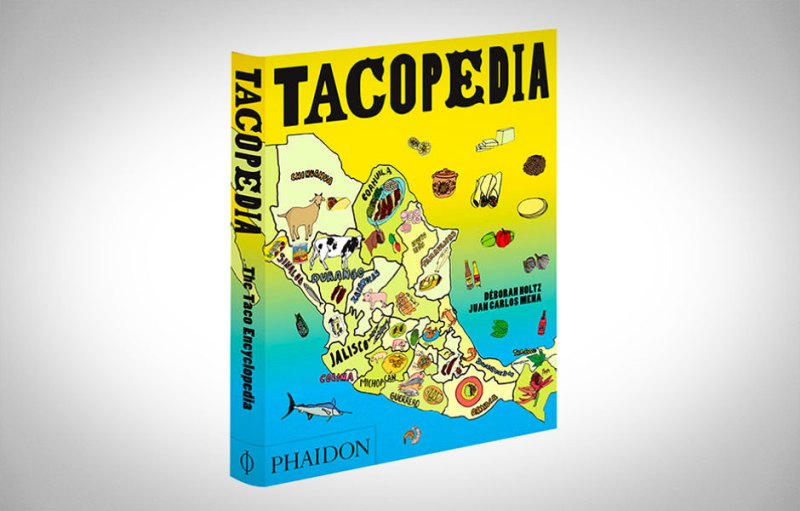
Thank goodness for Tacopedia by Déborah Holtz and Juan Carlos Mena. This book goes over everything I’ve ever wanted to know about the taco, from the history of the taco to the history of the tortilla. It dissects the tortilla, from the invention of the corn tortilla, every way you can possibly prepare it — baked, fried, steamed, boiled and more — and goes all the way to how the flour tortilla came along. Then it goes into the taco, teaching readers everything, how meat is prepared, the different ways you can eat it, the best places to get them — El Farolito was on the list, Taco Bell wasn’t — and fun facts like this:
-“During the Porfiro Diaz Regime at the turn of the 20th century, tacos were seen as the food of the poor.”
-”The average Mexican consumes 135 pounds of tortillas a year.”
-”Having tacos al pastor with a “garden” of onion, cilantro, pineapple, and salsa is a Mexico City original.
So if you love tacos, or know somebody who does, we suggest you go pick up a copy of this book. It’s pretty awesome.
Tacopedia, $16.47 at amazon.com.
Editors' Recommendations
- From $350 to $1,399: The 5 best outdoor pizza ovens in 2024
- Here’s how to crawfish boil the right way (and everything else there is to know about crawfish)
- How to grill filet mignon on a gas grill: Advice from an expert
- Mezcal service is the latest great import from south of the border
- What is chicory coffee? All about this unique variety of our beloved morning drink


